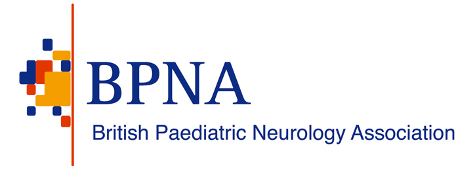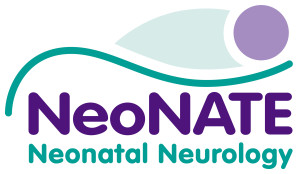Introduction
The BPNA is very sympathetic to the needs of children with epilepsy and their families. Our members are devoted to improving the lives of children with epileptic seizures. We are keen to investigate the therapeutic potential of pharmaceutical grade cannabis related products in robust scientific treatment trials and to support the use of scientifically tested and proven treatments in appropriate clinical circumstances. We encourage all families who have children with complex epilepsies to consult with their paediatric neurologist to explore the many treatment options that exist and to make informed decisions about the pros and cons of different treatments.
Guidance
The British Paediatric Neurology Association (BPNA) was asked in 2018 by NHS England, and on behalf of the devolved nations, to develop interim clinical guidance for clinicians in the use and prescription of cannabis-based products for medicinal use in children and young people with epilepsy. This guidance has been updated to take into account developments over the past 3-years and the publication of the guidance issued by the National Institute of Clinical Excellence (NICE) [NG144].
BPNA Guidance on the use of cannabis-based products for medicinal use in children and young people with epilepsy (updated October 2021)
The Association of British Neurologists (ABN) also produced a statement on use of marijuana (cannabis) related products in the treatment of complex epilepsies: ABN statement (published August 2018, revised March 2019)
Clinical Trials of CBMPs in Complex Epilepsy
The National Institute for Health Research (NIHR) has an ongoing call for proposals for primary clinical research to evaluate the safety and efficacy or clinical effectiveness of cannabis-based products for medicinal use in humans. BPNA members have developed two trial proposals that are in advanced stage of development, in collaboration with NHS England.
BPNA statement on clinical trials (5 August 2021)
Following collaborative work with NHS England and patient representatives, in principle support was confirmed by the National Institute for Health Research (NIHR) in April 2021, for two trials into early onset and genetic generalised epilepsy to be led by BPNA members who are paediatric neurologists at University College London.
The aim is to deliver safe and scientifically robust trials which build the evidence base for adults and children with severe epilepsy, including those patients currently using cannabis-based medicinal products (CBMPs). These trials will help to inform clinical decision making on whether or not to prescribe CBMPs and allow the NHS to make future commissioning decisions for patients with refractory epilepsy not currently able to access a licenced product. The study design proposed will specifically measure the effect of a Cannabidiol (CBD) product, and a CBD plus Tetrahydrocannabinol (THC) - based product, compared to placebo to better understand the relative benefit and potential risks of these treatment options.
Why can’t there be an observational study?
All parties involved in the trial design agreed that the study methodology would provide evidence of significant scientific value and that an observational study with a small patient cohort would not produce similarly robust results nor add to the current evidence base, and certainly not provide results suitable for routine clinical or commissioning decisions. This is particularly true for THC-containing products where there is very limited published and peer reviewed evidence of efficacy and safety for this indication.
Current status of the trial and when will it start?
The study start date is reliant on securing a suitable CBMP supply for the trial. However, this has proved challenging for us, and for a number of other research studies looking to build the evidence base for medicinal cannabis use. Significant progress has recently been made in this area and the study team and NHS England and NHS Improvement are in commercially confidential negotiations with a medicines supplier who would also produce a taste and smell matched placebo product to be used as part of the trial design.
Once a supply contract has been finalised with a manufacturer who can provide products for the trials that meet the required quality standards, the study team will be able to initiate the formal trial set up process and confirm a date for patient recruitment to start.
All products used in the trial (including the placebo) must be manufactured to MHRA Good Manufacturing Practice (GMP) standards and will need a minimum of six month’s stability data before being supplied, which is a standard requirement for these types of trials. This ensures that the composition of the medicine is sufficiently stable, providing assurance in its clinical use and confidence that comparative study measures can be accurately derived.
Frequently Asked Questions
Do cannabis-based medical products treat severe epilepsy or help with symptoms?
We know that one cannabis-based medicinal product does help some children with epilepsy. This is a medicine called Epidyolex. It has been through clinical trials and has been found to be safe and effective in three conditions in which epilepsy is a severe problem (Tuberous Sclerosis Complex, Dravet Syndrome, and Lennox-Gastaut syndrome). A licence has been granted by the regulatory authorities in the UK, Europe and the US which approves its use in Lennox Gastaut Syndrome and Dravet Syndrome. A decision by the UK authorities about licensing it for use in tuberous sclerosis complex is awaited.
Epidyolex is a pure Cannabidiol (CBD) medicine and it is being prescribed by paediatric neurologists throughout the country.
An outstanding question is whether adding Tetrahydrocannabinol, often called THC, to CBD is safe and effective. Campaigns in the media that you may have seen are usually for cannabis-based medicinal products containing THC.
Why do doctors and clinicians not know more about these treatments?
Doctors don’t know more about these treatments because the companies that produce cannabis-based medicinal products with THC have not yet conducted the standard routine research necessary to prove the treatments are safe and effective and describe the side effects.
Pharmaceutical companies conduct randomised controlled clinical trials (RCTs) on new medicines to test the safety and effectiveness of their products. It is the results of the RCT that enable the company to apply for a licence to market its product. The regulatory authorities in the UK are unlikely to grant a licence to these medicines until they have undergone clinical trials and it is unlikely the NHS will pay for a medicine that has not been proven in clinical trials.
‘Licences are only granted if strict safety and quality standards are met’ – NHS England website www.nhs.uk/conditions/medicines-information/
The BPNA has a commitment to support clinical trials investigating medicinal cannabis for treating childhood epilepsy.
Who decides whether to prescribe CBMP / medicinal cannabis?
Any decision to prescribe should be a joint decision between the doctor and the patient/family. Ultimately, however, individual doctors must take responsibility for whatever medicine is prescribed to children. Doctors must weigh up the available evidence for using a medicine they prescribe and carefully consider the possible benefit and the safety aspects. Doctors may be reluctant to prescribe any medicine that has not undergone the appropriate research to show that it is safe and that it works in the patient’s particular condition.
Does the BPNA advise clinicians to prescribe any cannabis-based products?
The BPNA recommends paediatric neurologists prescribe products that have been approved by the European Medicines Agency (EMA) and/or UK medicines regulator, Medicines and Healthcare products Regulatory Agency (MHRA). Currently only one cannabis based medicine (Epidyolex) meets these requirements. The BPNA strongly supports the use of Epidyolex for its licensed indications.
Will the NHS pay for prescriptions of cannabis-based medicines?
It is unlikely the NHS will fund any medicines that have not been properly tested in clinical trials.
NICE (National Institute for Health and Care Excellence) decide which medicines will be available on NHS prescription. NICE conduct a ‘technology appraisal’ to consider if a new medicine should be funded by the NHS. The appraisal process considers clinical trial data as part of its decision making. www.nice.org.uk/about/what-we-do/our-programmes/nice-guidance/nice-technology-appraisal-guidance
Archive
BPNA Guidance on the use of cannabis-based products for medicinal use in children and young people with epilepsy (October 2018), updated October 2021 (see above)
BPNA statement on the use of marijuana (cannabis) related products in the treatment of complex epilepsies (4 July 2018)



